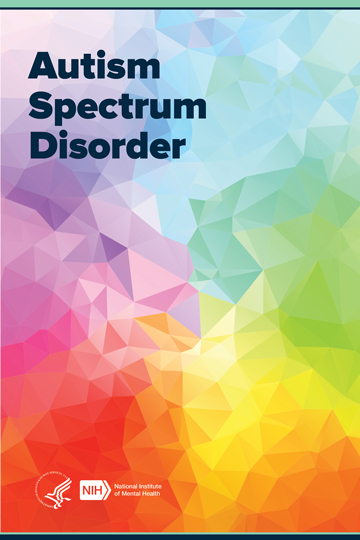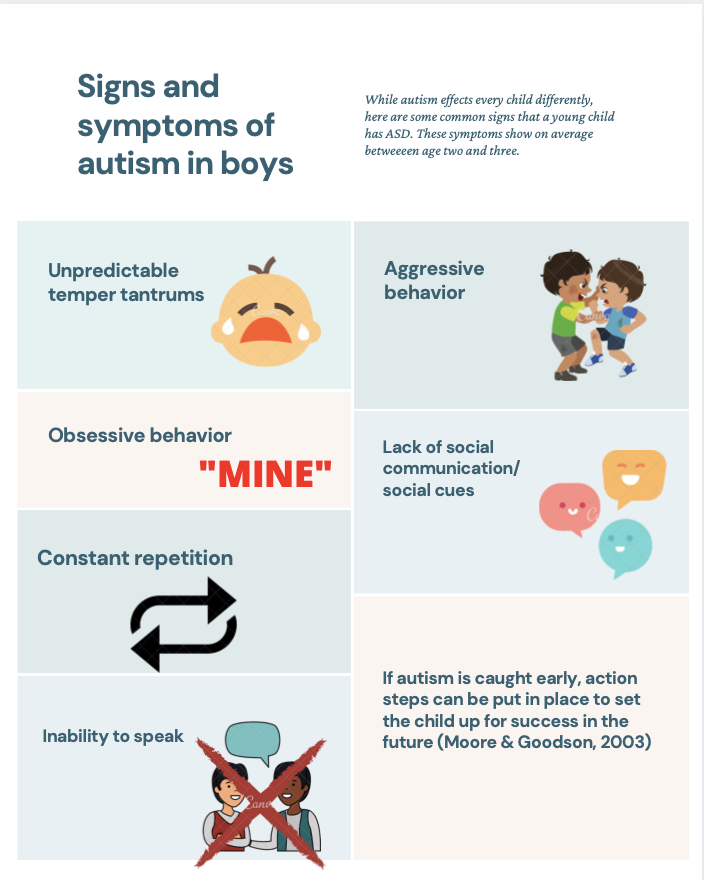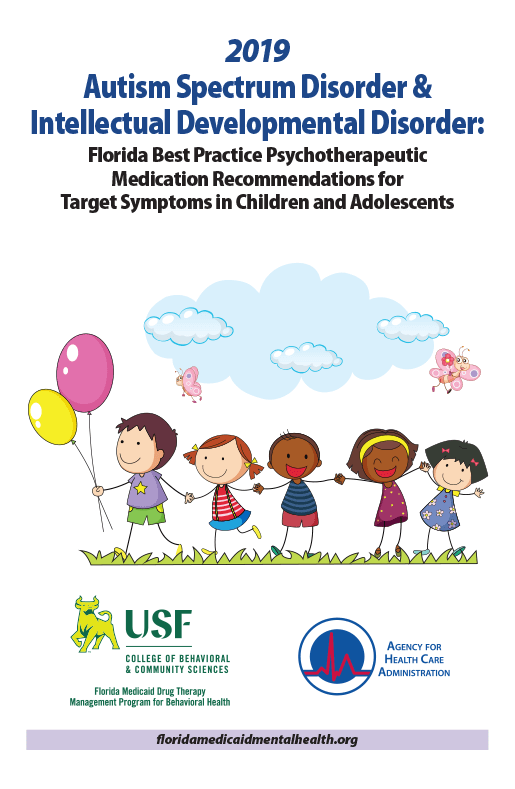How to design sensory-friendly spaces with advice from an Autism Therapist's perspective
How to design sensory-friendly spaces with advice from an Autism Therapist's perspective
Blog Article
Key Symptoms And Signs to Identify in Individuals With Behavioral Autism
When you come across somebody with behavior autism, recognizing key indications and signs is vital. Additionally, sensory sensitivities can lead to frustrating experiences.
Difficulties in Social Interactions
When you communicate with someone on the autism spectrum, you might discover they have a hard time with social hints and communication. These difficulties can make social interactions really feel overwhelming for them. You might see them preventing eye call or standing also close or also much away throughout discussions, which can produce misunderstandings. They might not pick up on body movement or facial expressions, making it harder for them to assess exactly how others are feeling.
When they do involve, they may chat about their passions in fantastic detail without seeing if you're interested. Comprehending these challenges can aid you approach interactions with compassion and perseverance, fostering an extra comfortable environment for both of you.
Trouble With Verbal and Non-Verbal Interaction

Non-verbal interaction can be also much more challenging. You might see an absence of eye get in touch with or limited use gestures, which can make interactions really feel awkward. Face expressions may not always align with the discussion, causing confusion concerning their feelings. Identifying these indications is important, as it aids you much better assistance and engage with people on the autism spectrum. By comprehending their communication difficulties, you can foster a lot more meaningful connections and give a much more encouraging atmosphere.
Repeated Actions and Regimens
Interaction challenges often go along with other signs of autism, such as repeated habits and a solid preference for routines. You might observe that people with autism frequently take part in details, repetitive actions, like hand-flapping, rocking, or repeating expressions. These behaviors can supply convenience and a sense of control in a commonly overwhelming globe.
When they adhere to an organized routine,Routines are just as important; numerous individuals prosper. You may find that changes to these routines can lead to significant distress. As an example, if they have an everyday ritual of consuming morning meal at a details time or adhering to a particular course to college, any type of interruption can trigger anxiousness.
Identifying these patterns aids you recognize their actions and provide support. By fitting their requirement for regular and enabling recurring activities, you can develop a more comfortable atmosphere that alleviates their obstacles.
Sensory Level Of Sensitivities

Usual Sensory Triggers
Sensory level of sensitivities can significantly impact everyday life for people with autism, as certain stimulations commonly activate frustrating responses. Common sensory triggers include loud noises, bright lights, and strong scents. Understanding these triggers can aid you handle your environment much better.
Behavioral Reactions Described
Comprehending your behavioral reactions to sensory sensitivities is vital, as they typically disclose just how you communicate with the globe. You might also locate on your own seeking certain sensory experiences, like deep pressure or quiet atmospheres, to aid ground yourself. Recognizing these patterns assists you recognize your requirements far better and can direct how you go now communicate them to others.
Coping Methods Overview
Acknowledging your sensory level of sensitivities is just the very first action; now it's time to explore coping approaches that can help you manage those experiences effectively. Begin by developing a sensory toolkit customized to your demands. Establishing an organized regimen can also give predictability, minimizing anxiousness around sensory overload.
Restricted Passions and Focus
While many individuals create a broad variety of interests, those with autism commonly demonstrate limited passions and an intense focus on specific subjects. You might notice that a person with autism can spend hours delving right into their favored topic, whether it's a specific sort of train, a certain movie, or a scientific concept. This extreme emphasis isn't just a pastime; it can come to be a central part of their identification and social communications.
You might locate that conversations revolve around these interests, and they may battle to engage in wider subjects. For them, these concentrated rate of interests supply comfort and a sense of mastery. While it is essential to motivate expedition of new subjects, respecting their enthusiasms is similarly crucial. By recognizing and recognizing these restricted interests, you can cultivate a supportive setting where they feel valued and recognized, enabling more purposeful connections and communications.
Psychological Regulation Problems
Individuals with autism typically deal with challenges in emotional law, which can be influenced by their extreme concentrate on particular passions. You might observe that when an individual is deeply taken part in a recommended activity, they can experience strong emotions, whether exhilaration or disappointment. When things do not go as planned., this intensity sometimes makes it difficult for them to change equipments or manage their sensations - Aba Therapist.

Variability in Developing Milestones
When it comes to developing landmarks, you'll notice that individuals with autism commonly reveal a broad variety of irregularity. You might see a kid excel in language skills but useful link struggle with social interactions.
It's necessary to identify that each person's trip is one-of-a-kind. Observing these patterns can aid you comprehend their strengths and needs much better.
Regularly Asked Inquiries
Just How Is Autism Detected in Children and Grownups?
To detect autism in kids and adults, experts examine behavior, communication abilities, and social communications. They often make use of standardized tests, meetings, and observations to identify if an individual fulfills the standards for autism range condition.
Are There Different Sorts Of Autism Range Disorders?
Yes, there are different sorts of autism range disorders, including Asperger's disorder and pervasive developmental disorder-not otherwise specified. Each kind differs in extent and characteristics, so comprehending these distinctions can help you better support people with autism.
What Treatments Work for People With Autism?
When thinking about reliable treatments for individuals with autism, you'll find alternatives like Applied Habits Evaluation, speech treatment, and occupational therapy. Each approach can help boost interaction, social skills, and day-to-day working tailored to specific needs.
Can People With Autism Lead Independent Lives?
Yes, individuals with autism can lead independent lives. With the ideal support, skills training, and resources, you can aid them develop self-sufficiency, manage day-to-day jobs, and thrive in different settings, promoting their self-reliance.
Exactly How Can Family Members Assistance Loved Ones With Autism?
You can support your loved ones with autism by producing an organized setting, urging their passions, exercising patience, promoting interaction, and more advertising social abilities. Commemorate their success, regardless of just how tiny, and develop a supportive community.
Although several individuals on the autism range can understand and utilize language, they usually encounter considerable obstacles with both non-verbal and verbal communication. Identifying these signs is necessary, as it helps you far better support and engage with individuals on the autism range. You may see that individuals with autism frequently engage in particular, repeated actions, like hand-flapping, rocking, or repeating phrases.Sensory sensitivities can significantly impact daily life for people with autism, as certain stimuli usually activate frustrating reactions.When it comes to developmental turning points, you'll discover that individuals with autism often show a broad variety of irregularity.
Report this page